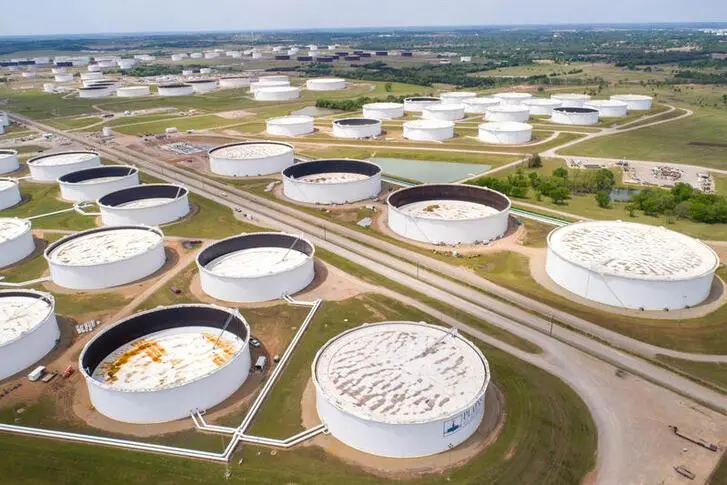PHOTO
TOKYO - Oil prices were mixed on Friday and still on track for a weekly loss, amid optimism stemming from a draw in U.S. inventories and uncertainty about global supplies fuelled by an OPEC+ impasse.
Brent crude oil futures were down 3 cents at $74.09 a barrel by 0442 GMT. U.S. West Texas Intermediate futures CLc1 were up 6 cents, or 0.1%, at $73.00 a barrel.
Prices on both sides of the Atlantic were headed for a weekly loss of nearly 3%, dragged by the collapse of output talks between the Organization of the Petroleum Exporting Countries and allies including Russia, or OPEC+.
"The markets have no clear direction due to uncertainty over the OPEC+ production after August," said Chiyoki Chen, chief analyst at Sunward Trading.
"A draw in the U.S. crude inventories was a positive factor, but it could be a temporary phenomena given a resurgence in the COVID-19 pandemic in the U.S. and elsewhere," he said.
Fresh COVID-19 lockdowns could slow a recovery in air travel and demand for jet fuels, he added.
Japan has banned all spectators from Olympics, scheduled to start on July 23, as a resurgent coronavirus forced it to declare a state of emergency in the host city Tokyo.
In the United States, crude and gasoline stocks fell and gasoline demand reached its highest since 2019, the U.S. Energy Information Administration said on Thursday, signalling increasing strength in the economy.
Crude inventories fell by 6.9 million barrels in the week to July 2 to 445.5 million barrels, the lowest since February 2020, and more than the expected 4 million-barrel drop estimated in a Reuters poll.
Gasoline stocks fell by 6.1 million barrels, exceeding expectations for a 2.2 million-barrel drop.
Even with oil prices rising toward $75 a barrel, U.S. shale firms are keeping their pledges to keep production flat, a departure from previous boom cycles.
U.S. production peaked near 13 million bpd in late 2019, and then fell amid COVID-19. Output rebounded to about 11 million in mid-2020, but has stagnated since.
"Since there's no major lift in the U.S. shale output, some investors are bullish despite the OPEC+ spat," said Hiroyuki Kikukawa, general manager of research at Nissan Securities.
COVID-19 cases in the United States are rising, almost entirely among people who have not been vaccinated.
However, gains in oil prices were capped by worries that members of the OPEC+ group could be tempted to abandon output limits that they have followed during the pandemic due to the breakdown in discussions between major oil producers Saudi Arabia and the United Arab Emirates.
The two Gulf OPEC allies are at odds over a proposed deal that would have brought more oil to the market.
Russia was trying to mediate to help strike a deal to raise output, OPEC+ sources said on Wednesday. The United States had high level conversations with officials in Saudi Arabia and the UAE, the White House said on Tuesday.
(Reporting by Yuka Obayashi; Editing by Himani Sarkar) ((Yuka.Obayashi@thomsonreuters.com; +813-4520-1265;))





















